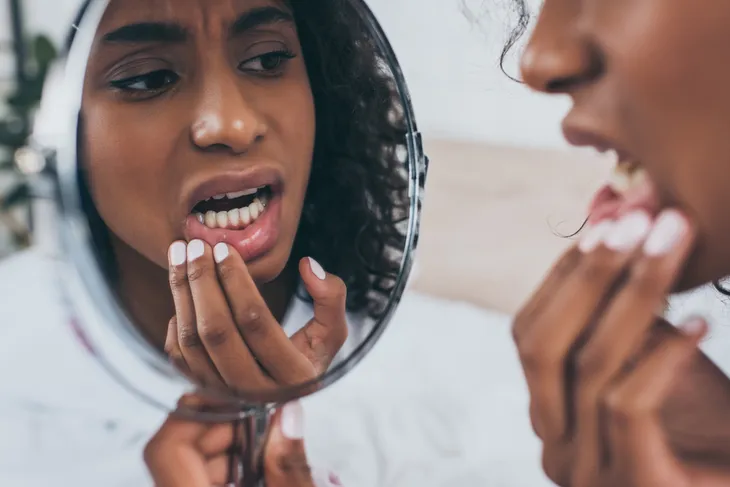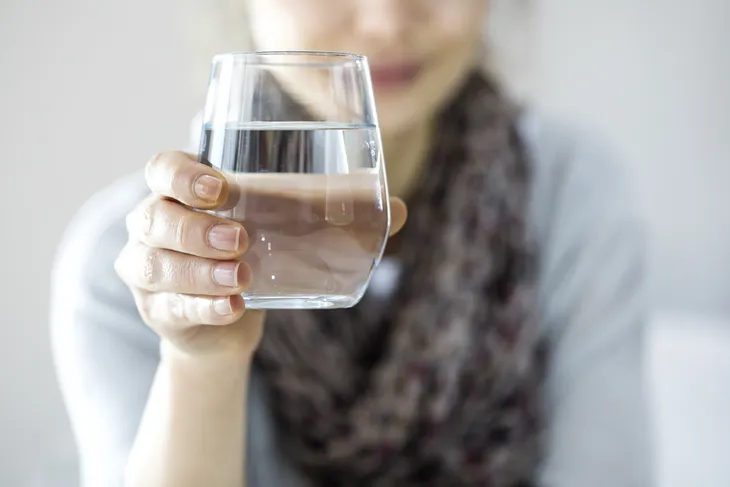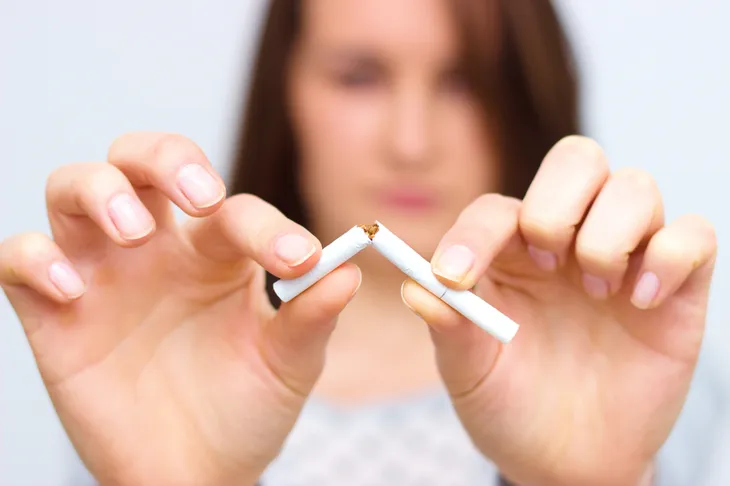- Bad breath can be embarrassing. Fortunately, it can be treated with a few lifestyle changes in many cases.
- While bad breath can be caused by certain foods, it can also be caused by poor habits like not flossing enough.
- Even though it can be challenging to smell your own breath, there are a couple of techniques that can help.
Bad breath, formally called halitosis, is a common condition. While many people experience bad breath occasionally, others deal with it daily. Not only can bad breath be embarrassing, but it can also be an indicator of health concerns.
Fortunately, bad breath is a treatable condition. To help you banish bad breath, let’s look at the causes, solutions, how to check your breath, and when to see a doctor.
Common Causes of Bad Breath
If you have bad breath, then several things could be causing it. Of course, certain foods and drinks have reputations for leaving breath smelly. And poor habits such as smoking or not flossing are other causes you might expect.
But some common causes of bad breath may be less obvious. For instance, sleeping with your mouth open can cause bad breath. Whether or not the cause is well known, understanding why it causes halitosis can help you prevent bad breath in the first place.
Poor Oral Hygiene
Consistent brushing and flossing do more than keep your smile white — they also wash away food particles and bacteria that can lead to bad breath. Similarly, bacteria that collect on your tongue can also cause halitosis.
“When food particles are stuck between your teeth or elsewhere in your mouth,” the Cleveland Clinic says, “they get broken down by bacteria that grow there.” As a result, the source says the process can produce a foul smell.
Dry Mouth
If the salivary glands in your mouth don’t release enough saliva, then your mouth can feel parched. Not only can dry mouth be uncomfortable, but it can also cause bad breath. When saliva moves around your mouth, it can help clear away food particles and bacteria.
So, a lack of saliva can make it challenging for your mouth to clean itself between brushing sessions. Dry mouth is a side effect of several things, including smoking, coffee, certain medications, and mouth breathing.
Certain Foods and Diets
Garlic and onion can add flavor to your meal, but they can also lead to stinky breath. Healthline says both get their distinctive flavors from sulfur compounds. Unfortunately, those sulfur compounds release gasses when they’re chewed and digested.
The released gasses then mix with bacteria in your mouth, which can produce a foul smell. A low-carb diet can also cause bad breath. According to WebMD, odor-causing ketones are released into saliva when the body enters the fat-burning state of ketosis.
Gum Disease
Gum disease, also known as periodontitis, is another cause of bad breath. When plaque builds up on teeth, it can harden into tartar and lead to gum disease. In addition to swollen gums that bleed after brushing, the Cleveland Clinic says chronic bad breath is another symptom of gum disease.
Besides bad breath, the Mayo Clinic says untreated gum disease “can destroy the bone that supports your teeth.” As a result, it can cause teeth to loosen and even lead to tooth loss.
Solutions for Bad Breath
According to Medical News Today, “it is estimated that 1 in 4 people have bad breath on a regular basis.” So, you’re far from alone if you deal with bouts of bad breath. There is good news: in many cases, you can banish bad breath by changing your oral hygiene and lifestyle habits.
The right solution for you depends on the cause of your bad breath. That said, practicing proper oral hygiene every day is a good place to start. We’ll explain why and get into other solutions next.
Thoroughly Cleaning Your Mouth
Since lingering food particles and bacteria can lead to bad breath, regularly cleaning your entire mouth is a necessity. The American Dental Association (ADA) says you should brush twice a day and floss once. And don’t forget to brush your tongue as well.
Swishing with mouthwash can also be a helpful extra step. If you decide to use mouthwash, then look for one with the ADA Seal of Acceptance. Additionally, dental checkups are an essential aspect of practicing good oral health. WebMD says visiting a dentist twice a year is a good general guideline.
Drinking More Water
Dehydration can make your mouth feel dry and lead to stale breath. So, drinking more water can help keep bad breath at bay. Water itself can help wash away food particles. And water can also trigger saliva production, which plays a vital role in preventing bacteria from building up.
It’s also worth noting that research suggests drinking a glass of water can clear away up to 60-percent of substances responsible for bad breath — all the more reason to drink more water throughout the day!
Eating Certain Foods
If you experience bad breath after a flavorful meal with garlic or onion, then other foods can help counteract the effects. For instance, foods that banish bad breath include apples, parsley, and spinach. The polyphenols in all three can help break down pungent sulfur compounds.
Some people experience bad breath as a side effect of following a keto diet. If you’re one of those people, then talk with your doctor about potentially eating more carbohydrates.
Changing Certain Habits
Poor habits that cause bad breath include smoking and drinking too much alcohol. Both can inhibit saliva production, which can turn your mouth into a breeding ground for odor-causing bacteria. Quitting can be challenging, so talk with your doctor if you need support.
Sleeping with your mouth open can also cause dry mouth and bad breath. If you struggle to keep your mouth shut while you sleep, CNN recommends “taking care of your nose to minimize congestion.”
It can help to blow your nose before bed, and the source says you might consider nasal saline irrigation. Since nighttime mouth breathing is another habit that can be hard to break, talk with your doctor about possible solutions.
How to Smell Your Own Breath
If you’ve ever tried to smell your own breath, then you may have found it isn’t the easiest thing to do. “There’s no definitive explanation for why it’s hard to smell your own breath,” according to Healthline. However, there are techniques that can help.
Instead of cupping your hand and breathing into it, the source recommends licking the inside of your wrist and then smelling it. Alternatively, the source suggests using a tongue scraper to assess your breath. To do so, scrape the back of your tongue and then smell the scraper.
When to See a Doctor
Suppose you continue to have chronic bad breath after making lifestyle changes like regularly cleaning your entire mouth and drinking more water. In that case, it’s important to have the situation assessed by a dentist.
Since bad breath can be a symptom of gum disease, a dentist can help determine whether that’s the cause and what course of treatment to take. If the dentist can’t determine what’s causing the bad breath, then the Mayo Clinic says the dentist may refer you to a physician for further assessment.















